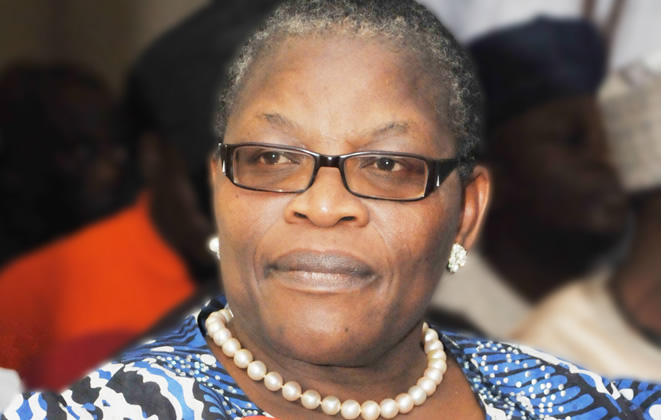Ezekwesili, others tasks FG on women education
A former Minister of Education, Dr. Obiageli Ezekwesili; Country Representative, Nigeria -Malala Fund, Ms. Crystal Ikanih-Musa, and a human rights lawyer, Ms. Mary Izobo, have urged the Federal Government to take more positive actions on women and girl child education in the country. They made the call during a virtual discussion (webinar) hosted by Ms. […]

Dr Oby Ezekwesili
A former Minister of Education, Dr. Obiageli Ezekwesili; Country Representative, Nigeria -Malala Fund, Ms. Crystal Ikanih-Musa, and a human rights lawyer, Ms. Mary Izobo, have urged the Federal Government to take more positive actions on women and girl child education in the country.
They made the call during a virtual discussion (webinar) hosted by Ms. Mary Izobo, with the theme “Fighting against a Gender ‘Glass Ceiling’: The Role of Women in Education”.
- Man, 20, docked for allegedly defiling 5-year-old girl
- Violence against girls, women ‘disgraceful’ — Osinbajo
The meeting was part of activities marking the International Day of the African Child celebrated every 16 June, a day that commemorates the Soweto Uprising of 1976 in the pursuit of a better education.
According to Ezekwesili, who was also a former Vice President of the World Bank, the lack of access to education for women and girls is a fundamental barrier and the strongest glass ceiling to women’s advancement.
She said, “It is empirically established across regions of the world that the pattern in school enrollment ratio and literacy are divided along gender lines as the enrollment ratio of boys are more than those of girls in schools.
“As a result, this sets a stage for disparities and inequalities for women leading to unequal access to social progress, economic and political powers.
“Education is the basis for access to opportunities; as societies that have achieved parity in education are societies that have done well economically.
“Economic performances of countries are determined by how well they have achieved gender inclusion in access to education.”
On her part, Ms. Ikanih-Musa quoted Mozambican’s former President, Joaquim Chissano, where he stated that “Women and girls are Africa’s greatest untapped resource, and it is they, not diamonds or oil and minerals, that will be the foundation for solid, sustainable and equitable progress”.
She added, “When women and girls get a formal education, they influence a country’s economy. Increasing the number of women who receive a secondary school education by one percent increases a country’s economic growth by 0.3 percent. Also, women and girls have talent and once countries match that talent with formal education, there is no such thing as a glass ceiling.”
Hosting the discussion, Ms. Izobo said that women and girls’ education are the most useful means of reducing the inequalities between men and women and ensuring the full participation of women in the socioeconomic development process.
